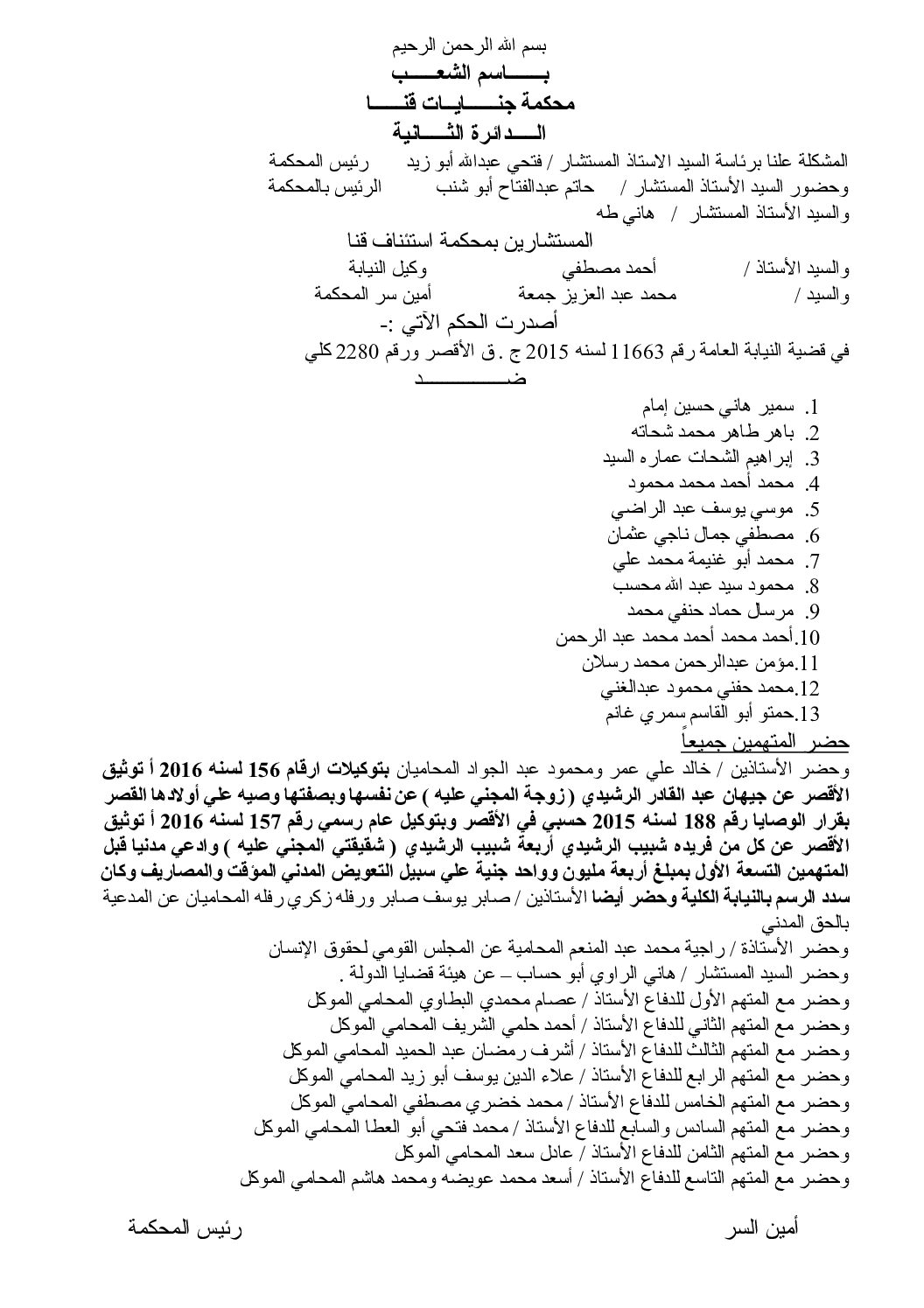Environmental Justice | Government in Decision Making Process for Use of Coal, Despite All Severe Consequences
There have been conflicting reports on whether the Government has made a final decision on Egypt’s use of coal for cement factories. What is clear however is that all the relevant ministries (including the Industry and Trade and Environment Ministries) sat in a long session with the cement companies, where the latter were lobbying for the use of coal. This happened while independent experts and organizations were absent in these important discussions around a policy that potentially impacts the health, the environment and the very livelihood of the Egyptian people.
7 out of 19 factories in Egypt were in compliance with national air emissions regulations in 2009, small fines are the only only penalty against the Violator
The Minister of Environment has been tasked with compiling the environmental regulations for monitoring the use of coal in the cement industry if the decision is confirmed. Minister Eskander has been given only two weeks. Even if she succeeds in writing stringent regulations, comparable with European regulations for example, there are no mechanisms in place to ensure the enforcement of such regulations. This is significant as only 7 out of 19 factories in Egypt were in compliance with national air emissions regulations in 2009, and the only available enforcement mechanism available to the EEAA is fining – a small price to pay when cement factories make profit margins ranging between 16-70% (depending on productivity levels over the past 10 years). According to experts, the cost of improving compliance with existing air pollution standards for cement factories using natural gas was estimated to be around 0.5billion USD in 2010; the likelihood of cement factories adhering to coal regulations with a more expensive cost of compliance is very small. This being the case, ECESR is concerned that the government has taken no steps to ensure that any regulations that the ministry of environment will set on coal is met with the adherence of cement factories.. Without a reformed, or new strategy for enforcement, the regulations (old and new) will likely continue to be redundant. Sufficient regulations alone cannot be regarded as a safeguard against the multiple negative implications of the use of coal as a source of energy for cement industries.
cement factories are responsible for roughly 6% of dust throughout Cairo, and up to 30% of dust in areas close to the plants, situation will worsen with use of coal
Cement producers in Egypt mostly operate in densely populated areas already suffering from their non compliant business as usual. Public records of industrial facilities show that there are 19 cement factories in Egypt. Grouping them by Governorate indicates that Suez, Cairo, Alexandria, Beni Suef, Qena, Minya and Assiut host the majority of the factories. Within Cairo only, cement factories are responsible for roughly 6% of dust throughout Cairo, and up to 30% of dust in areas close to the cement plants, who so far have been using natural gas as the source of energy. The effects of the use of coal as a source of energy are projected to further worsen the situation. Suez, Cairo and Alexandria Governorates are particularly highly populated, therefore ECESR predicts that the right to adequate housing and a healthy environment will be violated for those living closest to these cement plants – especially considering the enforcement track record so far.
In addition, we note that 65% of the cement sector in Egypt is controlled by 6 foreign-owned cement companies. These international companies are already making use of subsidized resources such as electricity and natural gas, and are amongst the most profitable industries in Egypt. Despite the dangerous implications of the polluting cement industry, these corporations are allowed to operate without complying with Egyptian pollution safeguards.
ECESR condemns the hasty decision-making of the Egyptian government, which has so far disregarded the concerns of the Ministry of Environmental Affairs and independent experts, and displayed inadequate exploration of the negative implications of the use of coal, and investigation of alternative energy sources. In this regard, ECESR calls on the government to review its decision-making process regarding the use of coal for the cement industries.
Finally, ECESR voices its concerns that such a large decision, with great impact both the energy infrastructure of Egypt, but also on the livelihood and sustainability of the Egyptian environment, in the short, medium and long term, is being considered without an elected and representative Parliament. In this situation, a bare minimum of public participation in the decision making process must be ensured, therefore ECESR requests transparent public consultations in every Governorate affected by the move to coal before the decision is made.

